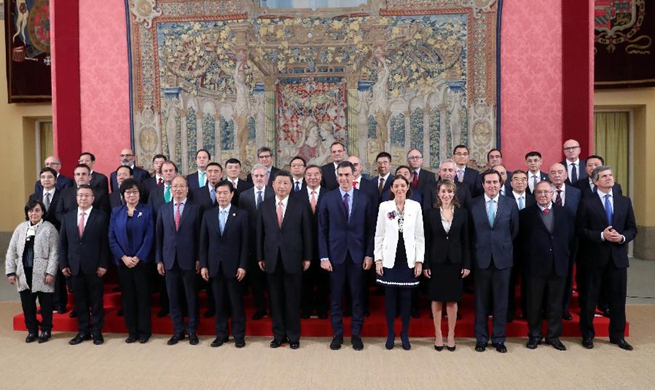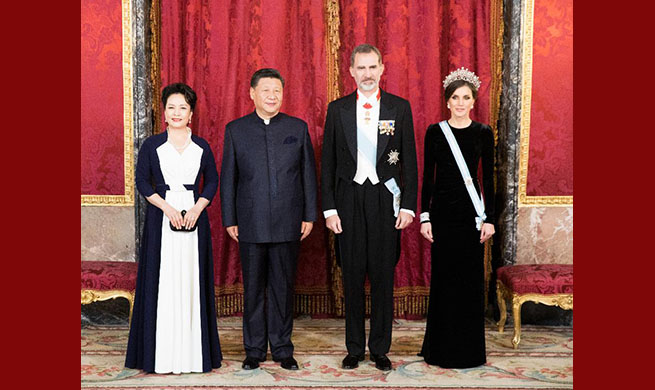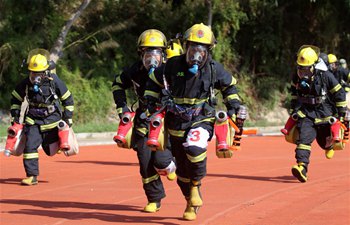UNITED NATIONS, Nov. 29 (Xinhua) -- A senior United Nations humanitarian affairs official on Thursday stressed the need to renew authorization for cross-border aid delivery in Syria, set to expire in December.
"The renewal of this Council's resolution will continue to save lives," said Reena Ghalani, director for operations and advocacy in the Office for the Coordination of Humanitarian Affairs (OCHA).
"Millions of people depend on your decision," she added, delivering the Council's monthly briefing on that matter.
Briefing on behalf of Mark Lowcock, under-secretary-general for humanitarian affairs and emergency relief coordinator, Ghalani recalled that between Nov. 3 and 8, the UN, the Syrian Arab Red Crescent and other partners concluded a complex humanitarian assistance operation to provide life-saving aid to about 50,000 displaced persons in the southeast of Syria's Rukban camp, the first major delivery there since January.
The operation was approved by the government of Syria and facilitated by the Russian Federation and the United States, she explained.
The teams, together with Syria's Ministry of Health, vaccinated more than 5,000 children, she said, recalling that the humanitarian workers expressed shock at conditions in the camp.
She went on to note that some 4.3 million people currently in need live in areas outside the government's control, 3 million of whom can only be reached through cross-border operations, and the UN has no alternative means to reach them.
This month alone, nearly 600,000 people received assistance, including food, medicines, educational supplies and other essential items. The vaccination of more than 12,500 children against measles and rubella has just been completed in Idlib Governorate, using supplies delivered across the border, she said.
All deliveries are monitored to ensure they contain only humanitarian supplies, she said.
Overall, from areas under government control, across conflict lines as well as borders, the UN and its partners are reaching, on average, almost 5.4 million people with humanitarian assistance in each month of 2018.
Expressing serious concern over violence this month, she cited increased reports of civilian casualties and displacements due to air strikes and ground fighting in Deir-ez-Zor Governorate.
In addition, there have been reports of mortar shells containing chlorine gas hitting three densely populated neighborhoods in western Aleppo, she said, reiterating that "any confirmed use of chemical weapons is abhorrent and a clear and egregious violation of international law."
Reporting the first air strikes in Idlib Governate in two months, she emphasized that they demonstrate the fragility of the agreements already reached on Syria and the urgent need to preserve them.
In any case, "we reiterate that under international humanitarian law, parties to the conflict must protect civilians against attack, treat them humanely and allow and facilitate the delivery of humanitarian relief," she noted.

















